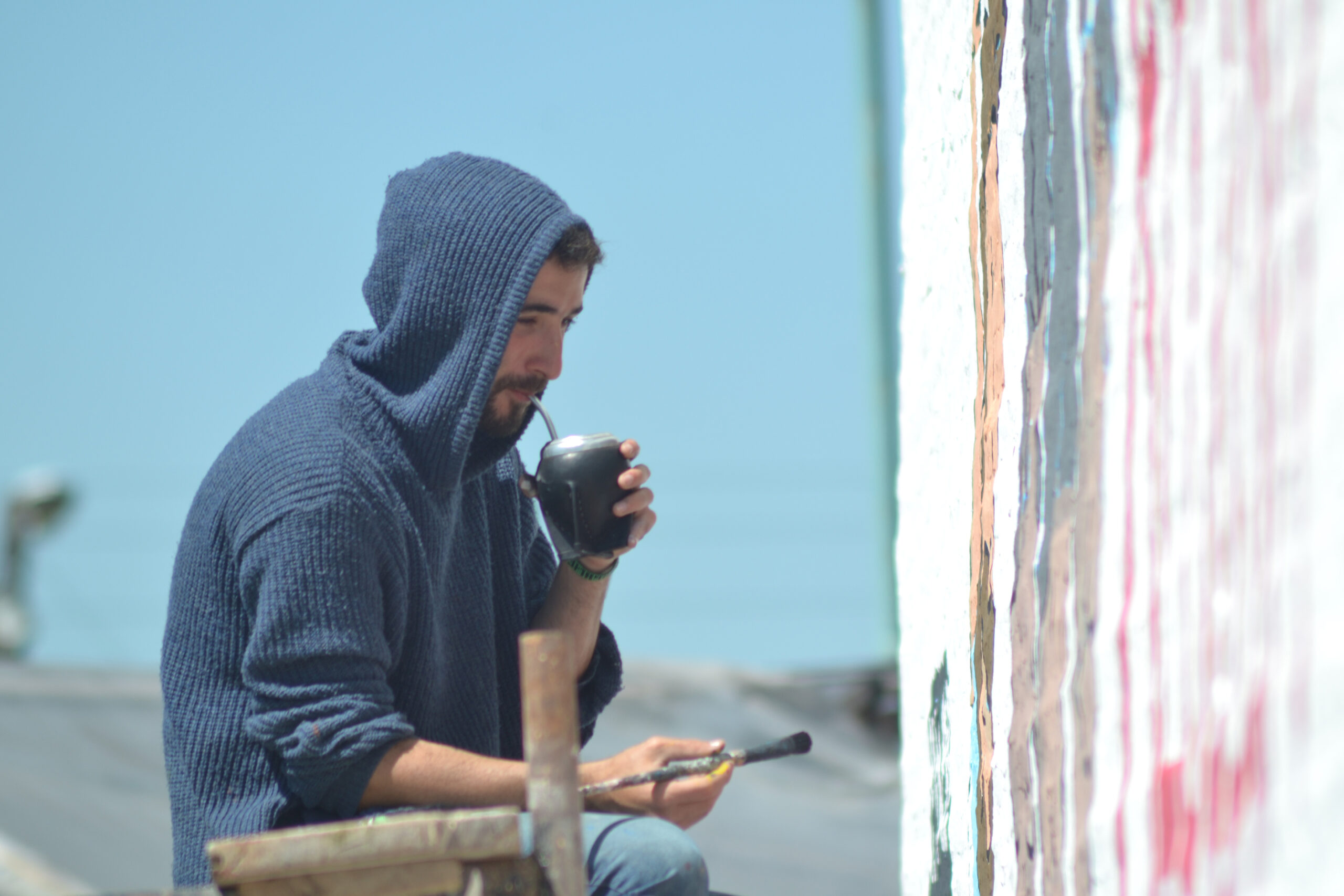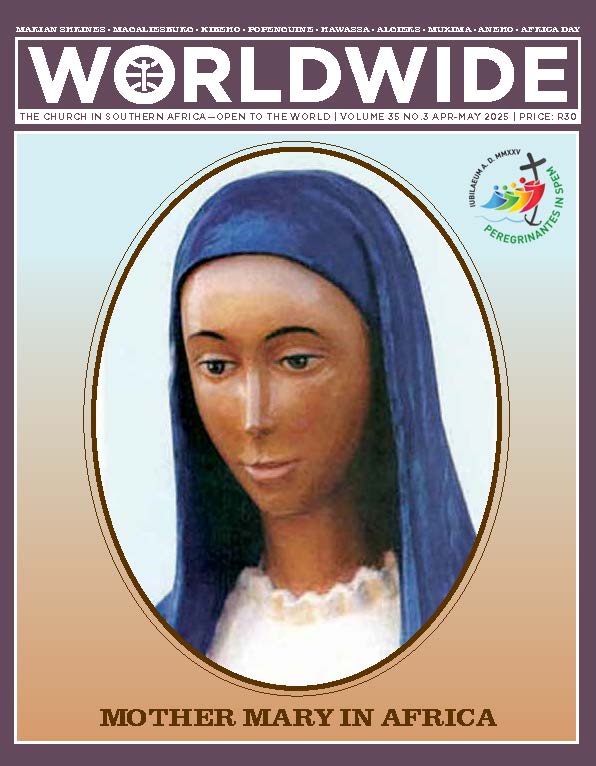
MOTHER MARY IN AFRICA
Head of the Statue of Mother Mary at Kibeho, Rwanda, carved by Marek Kowalski and based on the models of Jean Pierre Sibomana and Faustin Kayitana. In the statue, Mother Mary holds the Seven Sorrows Chaplet, a Marian devotion reintroduced to the Catholic community by Our Lady of Kibeho.
Kibeho is the only Marian apparition on African soil, officially recognized by the Church. Mother Mary’s requests for prayers preluded the 1994 Genocide.
FRONTIERS • AFRICAN DAY
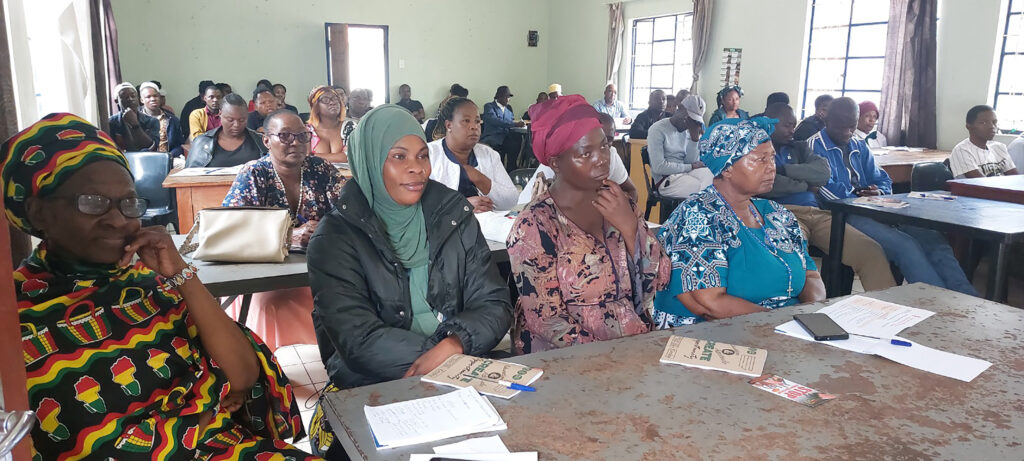
HIGHLIGHTING THE ENDURING PLIGHT OF REFUGEE MOTHERS IN SA: HOW THE CHURCH STEPS IN
Africa Day is celebrated on May 25th. The author focuses on the reality of thousands of refugee women who, fleeing from various conflicts or having been victims of trafficking, courageously strive to find a home in South Africa. The Church responds actively to their need for integration into society.
BY KATI DIJANE | CATHOLIC JOURNALIST
AS AFRICA Month casts a spotlight on the continent’s shared history of pain and resilience, it also highlights the enduring reality of displacement. From the biblical flight of the Virgin Mary, Joseph and the infant Jesus to Egypt, escaping King Herod’s wrath, to the countless mothers seeking refuge today, the search for safety and dignity remains a timeless struggle. In the heart of South Africa, particularly in the bustling metropolis of Johannesburg, refugee mothers embody this journey, navigating economic hurdles, societal prejudice and the constant fear of deportation.
South Africa has long been considered a land of opportunity for many people across Africa. Its rich history of struggle for justice and democracy has made it an aspirational destination for those fleeing war, persecution and economic hardship. Yet, the plight of refugees and asylum seekers in South Africa remains a critical issue, often marred by bureaucracy, xenophobia and systemic challenges.
According to the United Nations High Commissioner for Refugees, South Africa currently hosts approximately 250 250 refugees and asylum seekers from Africa. Worldwide Magazine has met some of the women from these countries and has even engaged with one woman who shared her experience of how political turmoil and rape uprooted her life in her home country, the DRC, and how she ended up in Johannesburg.
A moment spent with refugees
In Johannesburg’s Christ the King Cathedral Hall in February 2025, members of the Worldwide Magazine team witnessed firsthand the upskilling efforts of the Department of Pastoral Care for Migrants and Refugees, coordinated by Sr Marizete Garbin a Scalabrini (MSCS), and led by Fr Jean Marie Kuzituka Did-Ho, the vicar. This department is a part of the chancery’s structure, which offers its church community in the archdiocese spiritual and pastoral care. Their regular workshops provide vital and empowering business skills to migrant women, recognising that self-sufficiency is a crucial step towards integration.
“When most people arrive here (in South Africa), one of the first things they do is learn the local language,” explains Sr Marizete. “We provide English and isiZulu courses in the department.”
According to the United Nations High Commissioner for Refugees, South Africa currently hosts approximately 250 250 refugees and asylum seekers from Africa.
This emphasis on language reflects an understanding of the barriers refugees face. Beyond language, the department provides business management and computer skills training, and, through the Mother Assunta Training Centre in Johannesburg, offers vocational skills such as baking, beauty and sewing. The Bienvenu Shelter, also in Johannesburg, further provides a haven for women and children.
The department’s history, dating back to 1998 and led initially by the late Bishop Reginald Joseph Orsmond, and later by Archbishop Emeritus Buti Tlhagale, underlines the continual response necessary in South Africa to serve the refugees that arrive in large numbers. Sr Marizete notes that many come by land, facing immense hardship and vulnerability, including the risk of assault.
A mother’s testimony
The story, shared with Worldwide Magazine team members, of a mother from the Democratic Republic of Congo, reveals the traumas and struggles faced by refugee women. Fleeing the brutal murder of her parents and the gang rape at the hands of rebel soldiers, *Janine (not her real name) found herself in South Africa, seeking a semblance of safety. She shares,
“I came here in 2006, after the whole ordeal back home. When I arrived here, I looked for the nearest church, where I met a Congolese family, who took me in. It was the beginning of another nightmare, as I lived in harsh conditions with them. I’d do domestic work for them for R150 per week. I was eventually chased away and found myself in the CBD. I met a Congolese man, whom I eventually married the following year, and with whom I have three children. In 2017, he left me for someone else. To this day, I have been using an asylum document to get by. Language was also a barrier, as I didn’t understand much English.
“No matter how hard life is here for me, I don’t see myself going back to my home country.” (*Janine)
So, I relied on officials to help me with filling in the forms. I get the runaround when I ask about the status of my refugee application,” she reveals. “I am a professional caregiver, but I can’t even apply for a formal job.”
Her determination to support her family was met with the financial and business management assistance which she gets from Johannesburg’s Department of Pastoral Care for Migrants and Refugees. Her eyes light up as she shares, “The department’s three-month business programme and funding for my small business made a difference. I sell household items, including chairs, cups and cutlery, as well as clothes and wigs. I trade at flea markets across Johannesburg and close to where I stay. If one day, I am granted refugee status, I will be able to apply for a job as a midwife, and continue my business to take better care of myself and my children. No matter how hard life is here for me, I don’t see myself going back to my home country.”
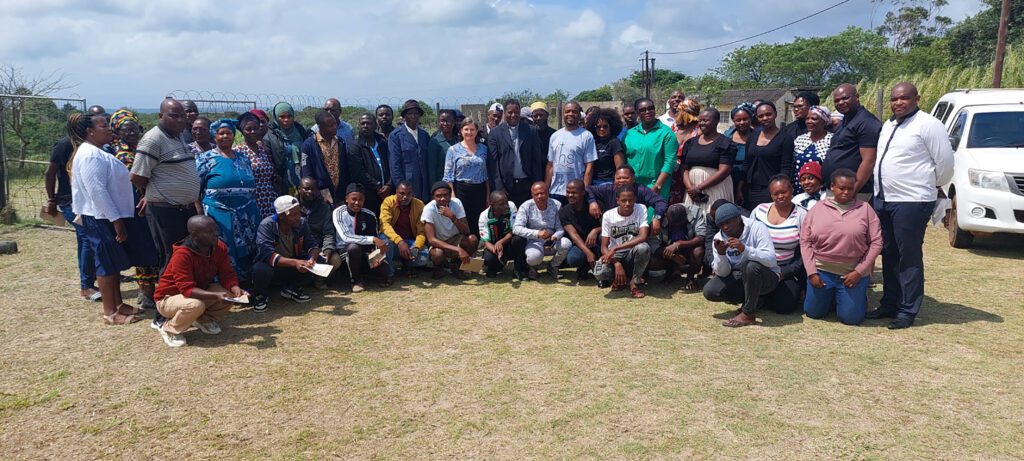
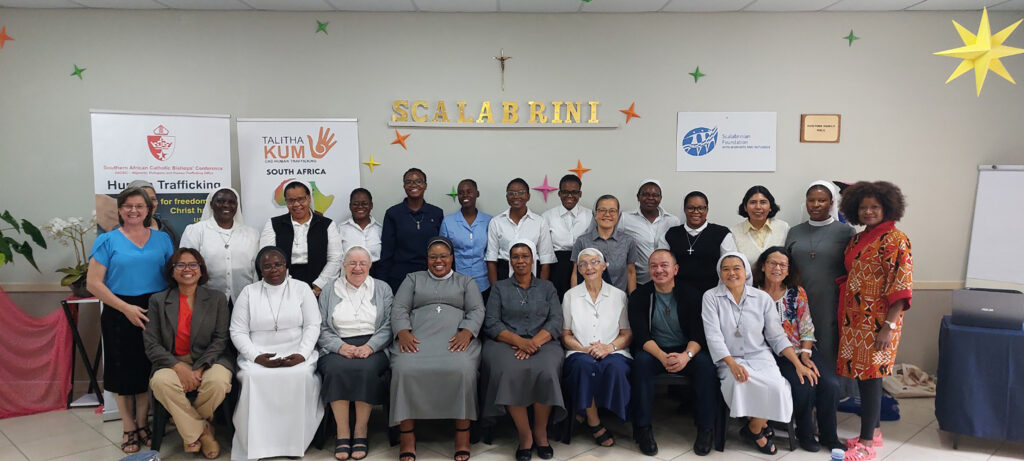
However, she adds that her hope for her children’s future, particularly the potential citizenship of her eldest son who is turning 18 this year, is mixed with anxiety. “I panic for them and whether they will be granted one,” she says. But according to Lusungu Phiri, a legal consultant, the country’s laws stipulate that once a woman can prove that she has given birth in South Africa, by means of a notice of birth with which she applies for a birth registration, she might obtain a hand-written birth certificate. The child, with all documents at his or her disposal, including clinic cards and proof of schooling, can then apply for citizenship.
The Catholic Church’s voice in Southern Africa
Based in the country’s capital city, Pretoria, the Southern African Catholic Bishops’ Conference (SACBC) is one of many movements playing a pivotal role in advocating the rights and welfare of migrants and refugees across Southern Africa. Through its Migrants and Refugees Office, the SACBC addresses the multifaceted challenges faced by these vulnerable populations.
Lusungu Phiri serves as the legal consultant for the SACBC, offering her expertise to bolster capacity-building and awareness programmes. Her primary focus is on raising awareness about the rights of refugees and migrants, and issues related to human mobility. Regarding refugees in South Africa, she shares her legal expertise:
“South Africa is a signatory to the UN Convention and upholds the Universal Declaration for Human Rights, a document established in 1948 after the Second World War. This means it has an international and regional obligation, but looks at how to domesticate laws surrounding this. In terms of the SADC region, there’s also another refugee convention that dictates how refugees should be treated, including the OAU Convention Governing the Specific Aspects of Refugee Problems in Africa. In the Refugees Act of South Africa, there are grounds that qualify one to be a refugee, including political, religious and sexual orientation.”
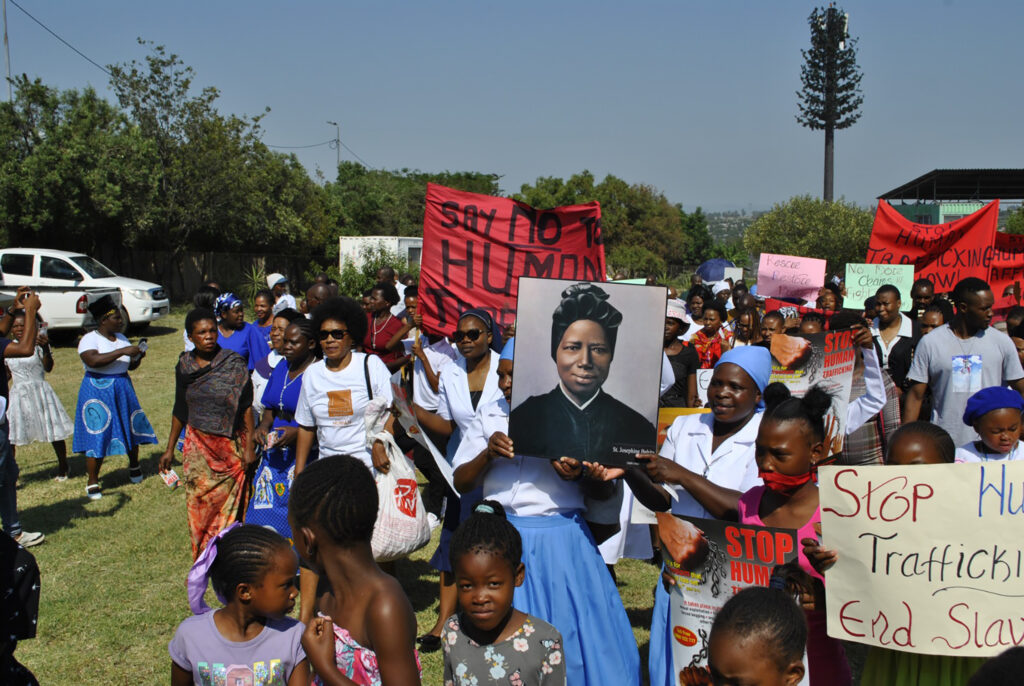
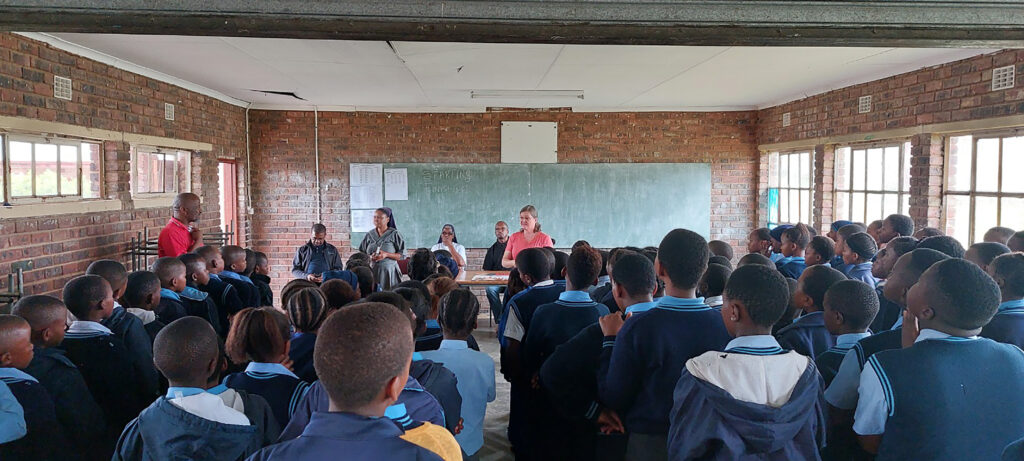
She adds that the Constitution, which is the supreme law, has a Bill of Rights, which ensures basic human rights for all who live in the country, including asylum seekers and refugees, albeit minimal for the former.
“In the Refugees Act of South Africa, there are grounds that qualify one to be a refugee, including political, religious and sexual orientation.” (Lusungu Phiri)
Phiri also adds that since South Africans enjoy more progressive rights than citizens of other countries, some people may not fall under the refugee categories, but still enter the country, flooding the immigration office and refugee process. However, she emphasises the individuality of each migrant’s journey, noting that every story is unique and requires specialised attention.
Sister Neide Lamperti MSCS, coordinates the department, which is led by Bishop Joseph Mary Kizito of Aliwal Diocese. According to her the SACBC, through a number of funders in Europe, provides certain dioceses with resources to assist in this ministry by donating food and helping with health, education, training and documentation, when necessary.
Human trafficking: anyone, especially a migrant, can be a victim
On the 8th of February every year, the Church honours the feast day of St Josephine Bakhita, a patron saint of victims of human trafficking. St Bakhita, from Sudan, knew the pain and trauma associated with kidnapping and slavery. This patron saint is promoted and invoked for prayers in South Africa, which also faces this global crime, a crime which according to Lusungu, is not readily talked about.
In fact, Tears Foundation, a South African-based organisation that helps rape and gender-based violence survivors, raises concerns that the country is a source, transit and destination point for trafficked individuals. Some key statistics include: Approximately 155 000 people are living in a state of modern slavery in South Africa. Most trafficking victims are women and children. Over 70% of trafficking victims in South Africa are trafficked for sexual exploitation.
Human trafficking is defined by the United Nations Office on Drugs and Crime (UNODC) as a global crime that trades in people and exploits them for profit. It continues to state that traffickers use violence, fraudulent employment agencies and fake promises of education and job opportunities to trick, coerce and deceive their victims.
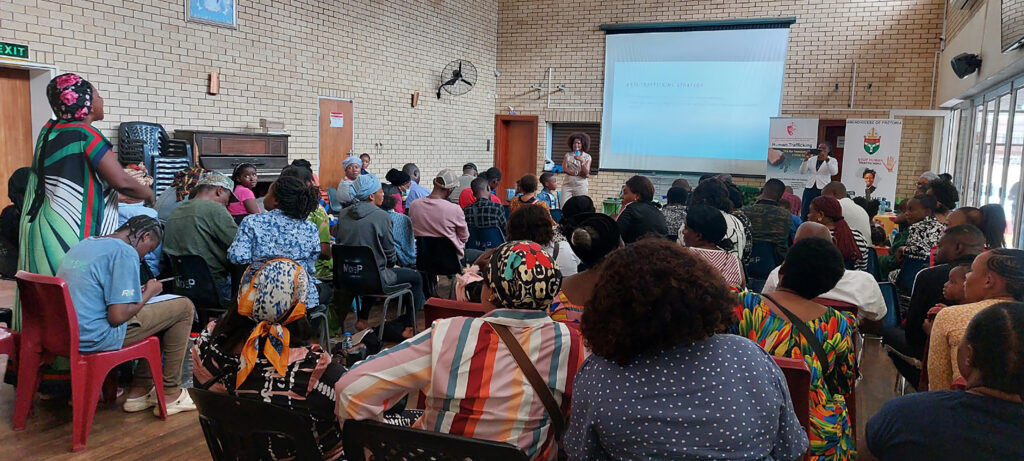
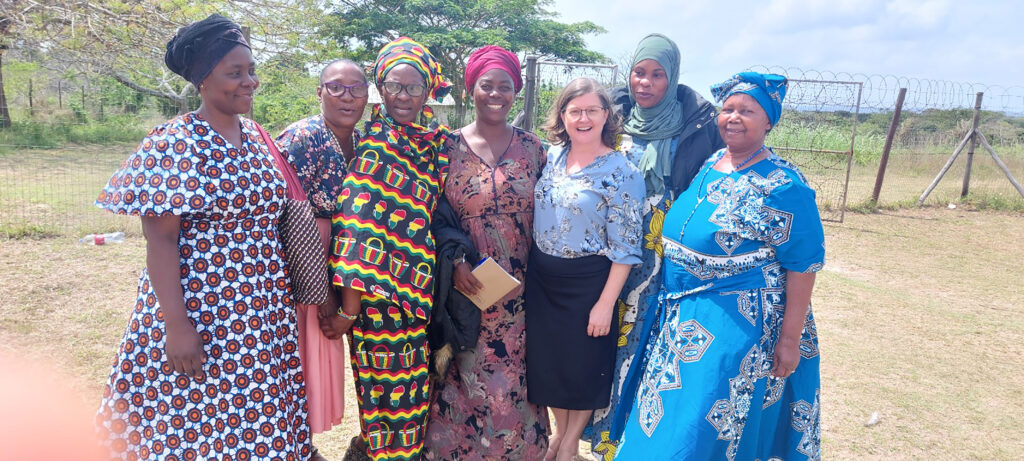
According to the UNODC’s 2022 Global Report on Trafficking in Persons, which is compiled using official figures from over 141 countries, female victims continue to be the primary targets. “The Report shows that in 2020, 42% of detected victims were women, and 18% were girls.”
Over 70% of trafficking victims in South Africa are trafficked for sexual exploitation.
These alarming numbers cause the SACBC to raise awareness of migration and of the dangers of human trafficking. It collaborates with various dioceses and shelters to provide support and resources to those affected.
On the plight of asylum seekers and refugee mothers, Sr Neide says that the Church, through the SACBC, should emphasize the importance of human dignity, solidarity, and integration for migrants and refugees. She states that the Church should advocate for:
Access to education, healthcare and employment opportunities to facilitate the successful integration of refugees into society.
Human dignity, recognising that every refugee is a person with inherent rights, deserving respect and humane treatment.
Solidarity, which emphasises the moral imperative to welcome and support those in need, reflecting the teachings of love and compassion.
The struggle for refugee mothers in South Africa extends far beyond mere survival. It is a quest for dignity, for a future where their children can thrive and for a society that welcomes them as fellow human beings. Africa Month, and especially Mother’s Day, remind us that our shared history and our shared humanity demand nothing less.

